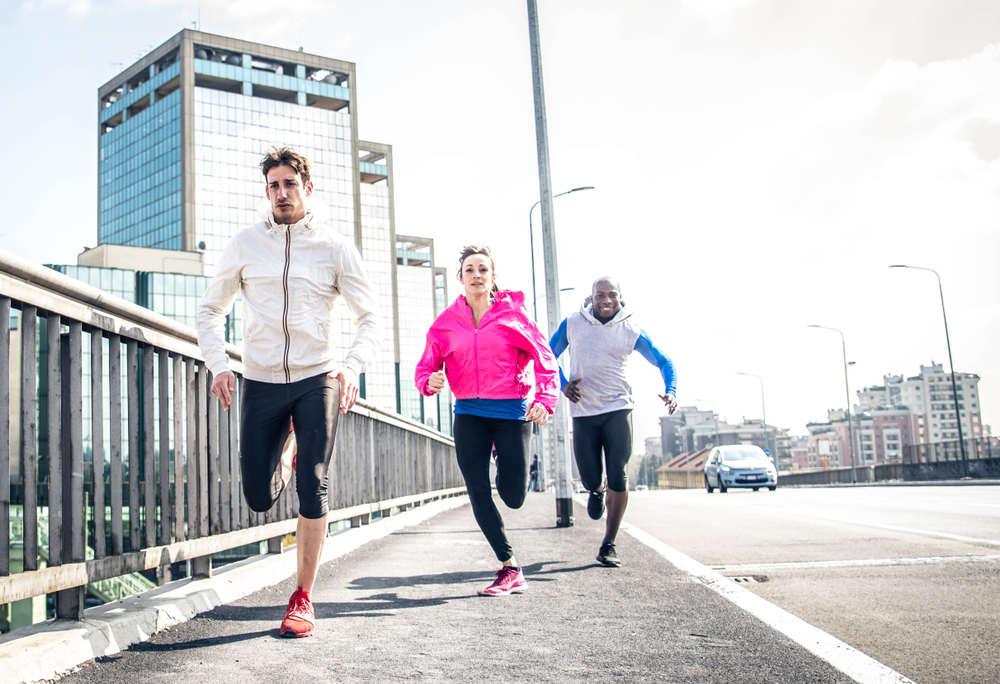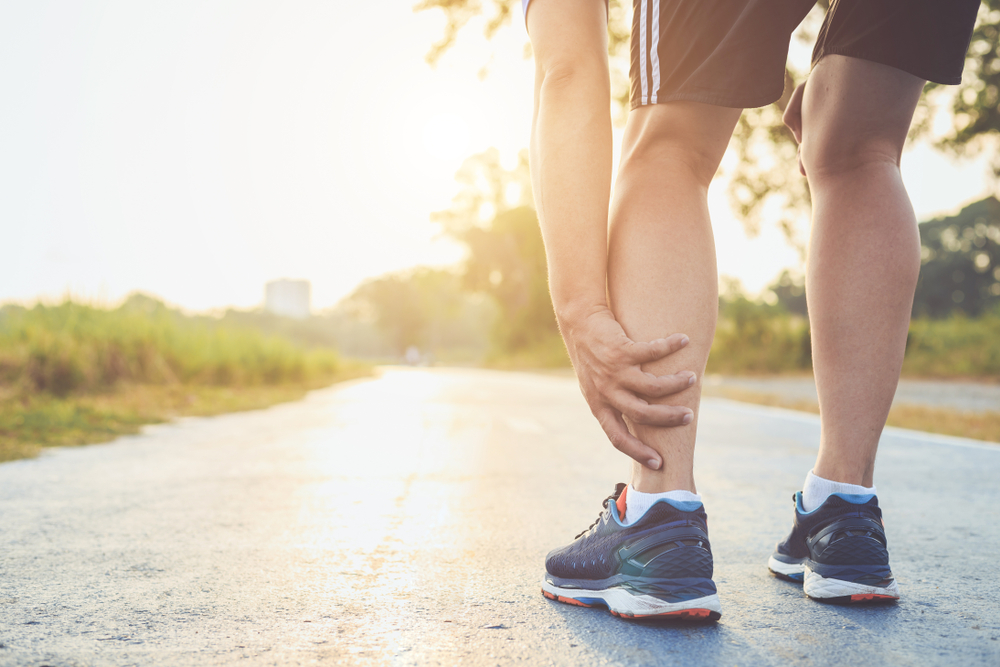Post-Marathon Recovery: Tips for Bouncing Back After a Marathon
- Importance of Recovery
- Factors Affecting Recovery
- Post-Marathon Recovery Strategies
- Conclusion: How to Recover From a Marathon
Have you recently ran a marathon, or have one planned, and are worried about the recovery process? We’ve put together this comprehensive guide to help you!
Completing a marathon is an extraordinary achievement that demands dedication and meticulous preparation. However, what happens after crossing that finish line is equally vital for your overall well-being and future performance.
In this article, we'll explore the significance of recovery, considering both its physiological and psychological aspects. We'll also delve into various factors that can influence your recovery timeline, from training intensity to nutrition and sleep quality, and provide 10 recovery strategies, so you know exactly what to do after a marathon.
Importance of Recovery
Active recovery after a marathon is crucial for both physical and mental well-being. It also helps to restore mental focus and motivation. Whether you’re a passionate long distance runner, or you’re just starting out, neglecting post-marathon recovery can lead to prolonged soreness, increased risk of injury, and burnout.
Putting as much effort into your recovery as you did into your marathon training is essential, both in terms of physical recovery, and mental wellbeing. Running a marathon puts a significant amount of strain on the body, causing muscle fatigue and micro-tears, dehydration, and depletion of energy stores. Proper recovery allows the body time to repair and rebuild muscles, replenish energy stores, and prevent injuries. If you start running again too soon, it will increase the chances of you causing a more severe injury. This can put you out of the game for longer than it would have taken you to rest and recover in the first place.
So, if you want to keep beating those personal bests, it is important to prioritise rest, hydration, nutrition, and gentle movement in the days following a marathon to ensure a smooth and efficient recovery process. Giving your body the right time to recover will give you the best chance of getting back on the racetrack in the best condition.

Factors Affecting Recovery
Now we know recovery is important, but post-marathon recovery looks different for everyone. There are various factors that can impact how long it takes to recover from a marathon, so, let’s look into them.
Age
Older runners may generally experience longer recovery times compared to younger ones due to
- Decreased muscle mass
As we get older, there tends to be a slow, natural decline in muscle mass and strength. This can result in slower recovery from intense physical activity like running a marathon, as the muscles may take longer to repair and rebuild.
- Reduced cardiovascular efficiency
Ageing can lead to a decrease in cardiovascular efficiency, including a decline in heart function and lung capacity, resulting in slower delivery of oxygen and nutrients to the muscles, prolonging the recovery process.
- Slower metabolism
As many in their 30s and upwards can attest to, our metabolic rate tends to decrease with age, which can impact the body's ability to efficiently process nutrients and repair tissues.
- Delayed inflammatory response
Older runners may experience a delayed inflammatory response to exercise-induced muscle damage, which can prolong the recovery process. Inflammation plays a crucial role in the repair and rebuilding of muscles post-marathon, so any delay in this process can impact recovery time.
- Decreased recovery hormone levels
As the years tick by, we also experience natural changes in hormone levels, including those related to growth and recovery, such as testosterone and growth hormones. For men, total testosterone levels fall at an average of 1.6% per year. Lower levels of these hormones can impact the body's ability to repair and rebuild muscle tissue after strenuous exercise.
Long distance running, of course, is primarily a cardiovascular exercise. Research suggests that, in order to combat natural decreases in recovery hormone levels, slower metabolism, and decreased muscle mass, we should try to incorporate weight training into our routines, and adjust our recovery strategies to allow for more rest and recovery time as we get older.
Fitness Levels
Your fitness level prior to the marathon can greatly impact your recovery afterward. Those who have trained consistently and have a higher level of cardiovascular fitness and muscular strength are likely to recover more quickly than those who are less fit.
If you are running your first marathon, it is normal for you to need longer to recover. It’s important to remember that your body is not used to the level of stress and strain of a marathon, meaning you will need to put extra care into your marathon recovery plan.
To ensure you’re preparing your body effectively before the big day, we’d recommend completing a proper 6-month marathon training plan for beginners.
Muscle Damage
After running a marathon, you will experience minor muscle tears and DOMS (delayed onset muscle soreness). This is stiffness and pain that you will begin to feel between 1 and 3 days of completing your run, and can then remain for up to one week.
It is crucial that you go through an extensive post-marathon recovery process to repair that muscle damage before you hit the tarmac again.
Blood Flow
Blood flow plays a crucial role in delivering oxygen and nutrients to muscles, which is essential for recovery.
Factors such as hydration, gentle movement, and massage can help enhance blood circulation and promote faster recovery, but we’ll get into that in more detail in a moment.
Sleep Quality
By now, we should all know that quality sleep is essential for a range of bodily functions, including optimal muscle recovery.
Aim for 7-9 hours of quality sleep per night, especially in the days following the marathon, to support the body's recovery processes.
10 Post-Marathon Recovery Strategies
Now you know what factors may help (or hinder) recovery after a marathon, you need to know what you should be doing to promote recovery. From keeping your body moving to replenishing vital nutrients, we've got you covered with practical tips to aid your recovery process.
1. Keep Moving
Once you cross the finish line, the first thing you’ll want to do is probably sit or lie down. However, the best thing for you to do is keep moving, in a non-strenuous way, for 10-15 minutes.
Your body has just been through an intense workout for hours. By keeping your body moving, you’ll prevent lactic acid from building up in your legs, which would make them stiff. By continuing to move around, your muscles can cool down gradually.
Another important tip is to avoid static stretching. It is better to do this on the following day instead.
2. Keep Clear of Painkillers
While it's tempting to reach for painkillers to alleviate post-marathon soreness, it's best to avoid them. Painkillers can mask potential injuries and interfere with your body's natural recovery process.
Instead, opt for alternative remedies like sprays or rubs designed for runners, which can provide relief without the risks associated with painkillers.
3. Replenish Your Nutrients
Food might be the last thing you’re thinking of once you’ve finished running a marathon, but it’s an extremely important part of your post-marathon recovery.
Carbohydrate-loaded foods are the best to eat within 1–2 hours of finishing your marathon. A banana or raisins would be perfect snacks. If you’re feeling more hungry, then chicken breast with some salad would be beneficial.
However, you don’t have to be too particular, the main takeaway here is that your body needs some fuel after running a marathon, just make sure you eat something, even if it’s not healthy.
4. Get Rehydrated
Keeping hydrated is another essential part of your marathon recovery plan. All the fluids you left on the racetrack need to be reintroduced into your body. However, you should always hydrate at a steady pace that allows your body to rebuild fluid rates comfortably so that you can recover faster.
The rule of thumb is around 500ml of water for every hour. If you want an added boost, you can opt for electrolyte water instead.
5. Have an Ice Bath
After a gruelling marathon, you probably won’t be too pleased to hear that an ice bath can have a positive impact on your recovery. Although ice baths are not everyone’s idea of fun, soaking your throbbing limbs is a great way to reduce inflammation and soreness.
To do this, run a cold water bath between 15C and 8C, and sit in the bath for around a minute. This will allow your body to adapt to the temperature. You can then add a bag of ice to your bath, and stay in the bath for 5–10 minutes.
Do not stay in the bath for any longer, as you will run the risk of skin damage and muscle stiffness.
6. Get a Massage, But Don't Wait Around for One
Often there is an opportunity to get a quick post-race massage at the finish line. The issue with this is there’s typically a long queue that you need to stand and wait in. This will not help with your post-marathon recovery.
A massage is still a great idea, though. To make sure you’re prepared, book an appointment with a sports massage therapist for the same day or day after your marathon. This massage will help flush out built up lactic acid, while also improving blood flow and circulation in your body.
If a sports massage is out of your budget, ask a partner or a friend for a rub down. If you’re planning on running more marathons in the future, it might be worth investing in a massage gun.
7. Get Some Sleep
Sleep is the ultimate recovery tool for your body and mind.
Most marathons start in the early hours of the morning. In this case, having a nap in the afternoon can be beneficial to your post-marathon recovery. Don’t sleep for too long though, as you’ll then find it challenging to sleep when you get to nighttime. 90 minutes - 2 hours should be enough.
If you’re struggling to sleep, try doing something that relaxes you, such as reading. Then go through your bedtime routine again. Stay away from your phone, because this can affect the quality of your sleep.
It’s normal for runners to have a bad night's sleep after the marathon. It should get better on subsequent nights. Sleep is an essential part of the process. While your brain and body are resting, more energy can be utilised to repair your muscles.
8. Look After Your Feet
Running a marathon obviously brings a lot of strain on your feet. There’s a high probability you’ve picked up one or two blisters. These can be painful, and you might think the best thing to do is pop them.
However, this isn’t a good idea. If the blister hasn’t popped itself, you can treat it using FootActive’s Manuka Honey range. Our plasters help promote organic healing, and reduce the risk of infection.
As soon as you’ve finished the marathon, change into some comfy footwear. Flip-flops can even be a great option. This depends on your preferences.
For at least a few weeks post-marathon, prioritise the comfort of your feet by investing in some good quality orthopaedic footwear or arch support insoles.
9. Take Some Time Off
Resist the urge to jump back into training immediately after the marathon. Take time off to allow your body to completely repair itself. Going straight back into running days after running a marathon can ruin all of the effort you’ve put into your post-marathon recovery.
After a marathon, you will have torn muscle fibres that need the time to heal. Wait until at least a week or two before considering going on a run again. Remember to listen to your body. If you go for a run and your body takes longer to recover than usual, it’s a sign your body is not ready yet.
The recovery period varies from person to person. You will likely take longer to recover if you’re an older runner, or if you’ve just ran your very first marathon.
10. Get Back into Running Slowly
Your first run is extremely important. Make sure to take it very easy, and gradually build up the time and intensity. Pushing yourself too hard is only going to lead to injuries. You will be out of action for longer, and it will then be more difficult to get back to the same fitness levels as pre-marathon.
If after a week you’re still not feeling like running, try swimming or cycling. This way you can build up your fitness again, so that you’re ready to eventually go on a gentle run.
Conclusion: How to Recover From a Marathon
After the big achievement of completing a marathon, it's essential that you give your body the time to heal.
Neglecting recovery can lead to prolonged soreness, increased risk of injury, and burnout. It's crucial to prioritise rest, hydration, nutrition, and gentle movement in the days following a marathon, to ensure a smooth and efficient recovery process.
Factors such as age, fitness levels, muscle damage, blood flow, and sleep quality can significantly impact your marathon recovery time. By understanding these factors and implementing effective recovery strategies, you will be able to create the ideal recovery strategy for you.
And remember not to neglect your foot health! Treating blisters and sore feet, as well as wearing the right supportive footwear during and after your marathon, will play a huge part in your recovery!

